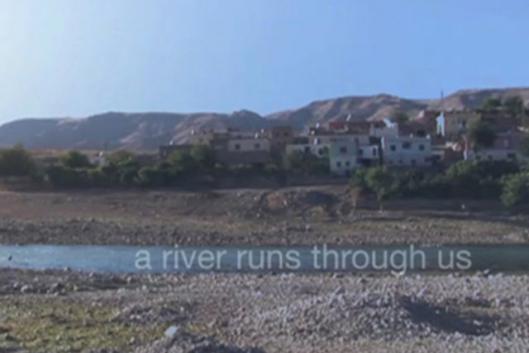Indonesia: Since April 2005, two companies involved in the building of a mega-dam in Indonesia, both owned by the a former Vice President of Indonesia, have been compulsory purchasing land from people around the Sulewana river in Poso, Central Sulawesi to make way for the construction and the displacement it will cause.
The project, known as, Poso II will affect the lives of up to 2,000 people. Residents of Peura Village are attacked by police officers as they try to prevent construction access.
Friends of the Earth Indonesia /Walhi is calling on the Indonesian government to halt this project to until there is certainty that the rights of the local population will be respected, the military presence will be withdrawn and a thorough transparent environmental impact assessment has taken place. http://www.foei.org/en/get-involved/take-action/halt-the-poso-ii-mega-dam/
Mekong region: 263 non-governmental organizations from 51 countries submitted a letter on March 21 urging the Prime Ministers of Lao PDR and Thailand to immediately cancel the proposed Xayaburi Dam on the Mekong River’s mainstream in Northern Laos.
The letter was submitted in advance of the Mekong River Commission’s (MRC) 33rd Joint Committee Meeting, scheduled for 25-26 March in Sihanoukville, Cambodia, where the four member countries were expected to make a preliminary decision on whether or not to proceed with the dam. As an outcome of the meeting, the four countries have decided to hold a new special session meeting scheduled for April 21st to discuss the Xayaburi Dam in further detail.
However, the Technical Review report for the Xayaburi Dam acknowledged the “uncertainty about the scale of impact on fisheries and associated livelihoods, both locally and in a transboundary context."
Mexico: The Eighth Encounter of the Mexican Movement of Dam-Affected People and in Defence of Rivers (MAPDER), held in Huitiupán, Chiapas in March 2011, culminated with the Huitiupán Declaration, in which the 441 delegates from affected towns and communities spoke out against the numerous hydroelectric dam projects in Mexico and Guatemala.
The declaration concludes with a call to draw on the historical memory of social struggles and the wisdom of the peoples in order to develop new forms of relations between human beings and nature, and to construct “self-managed alternatives that ensure the autonomy and control of our territories.”
Rivers for life, not for death! Water and energy are not commodities!
Change the system, not the climate! Free rivers for free peoples!http://www.otrosmundoschiapas.org/index.php/represas/68-represas/925-declaracion-de-huitiupan-viii-encuentro-mapder.html
Brazil: The National Encounter of Women Affected by Dams, organized by the Movement of Dam-Affected People (MAB) and Via Campesina, will take place in Brasilia this April. A report will be presented on violations of the human rights of the communities affected, and specifically the violations against women in those communities. Brazilian President Dilma Rousseff has been invited “to learn about this reality, looking us in the eye,” said one of the organizers.
The encounter will also include the presentation of a “truly popular model of energy development” which does not place natural resources and communities at the service of corporations that appropriate these resources for their own profit.http://www.radiomundoreal.fm/Mirarse-a-los-ojos
Ethiopia: On March 22, marking World Water Day, almost 400 organizations have signed a petition against the massive hydro-electric Gibe III dam on the Omo River which will destroy the natural flood patterns so vital for the Omo tribes’ cultivation methods as while as threatens at least eight tribes and about 300,000 people living around the Lake Turkana in Kenya. More on the Gibe III dam at Survival International:http://climate-connections.org/2011/03/22/world-water-day-global-outrage-over-ethiopia-mega-dam/
World: a documentary by International Rivers telling the stories of people from all around the world – India, Mexico, Brazil – whose way of life, livelihoods, and homes are threatened by the proliferation of mega-dams.
“A River Runs Through Us” is a personal and hopeful introduction to one of the biggest threats facing our world's lifelines, as told by the people at the forefront of the global movement. Filmed at Rivers for Life 3 -- a 2010 gathering of 350 river activists from 50 countries, held in rural Mexico -- this documentary touches on issues such as how climate change will affect rivers and dams; what happens to communities displaced by or living downstream of large dams; and what kinds of solutions exist that both preserve our life-giving waterways while meeting our needs for energy and water.
The film is here available in English: ">http://www.internationalrivers.org/node/6218 and
The Spanish version is here: http://www.archive.org/details/ARiverRunsThroughUs
